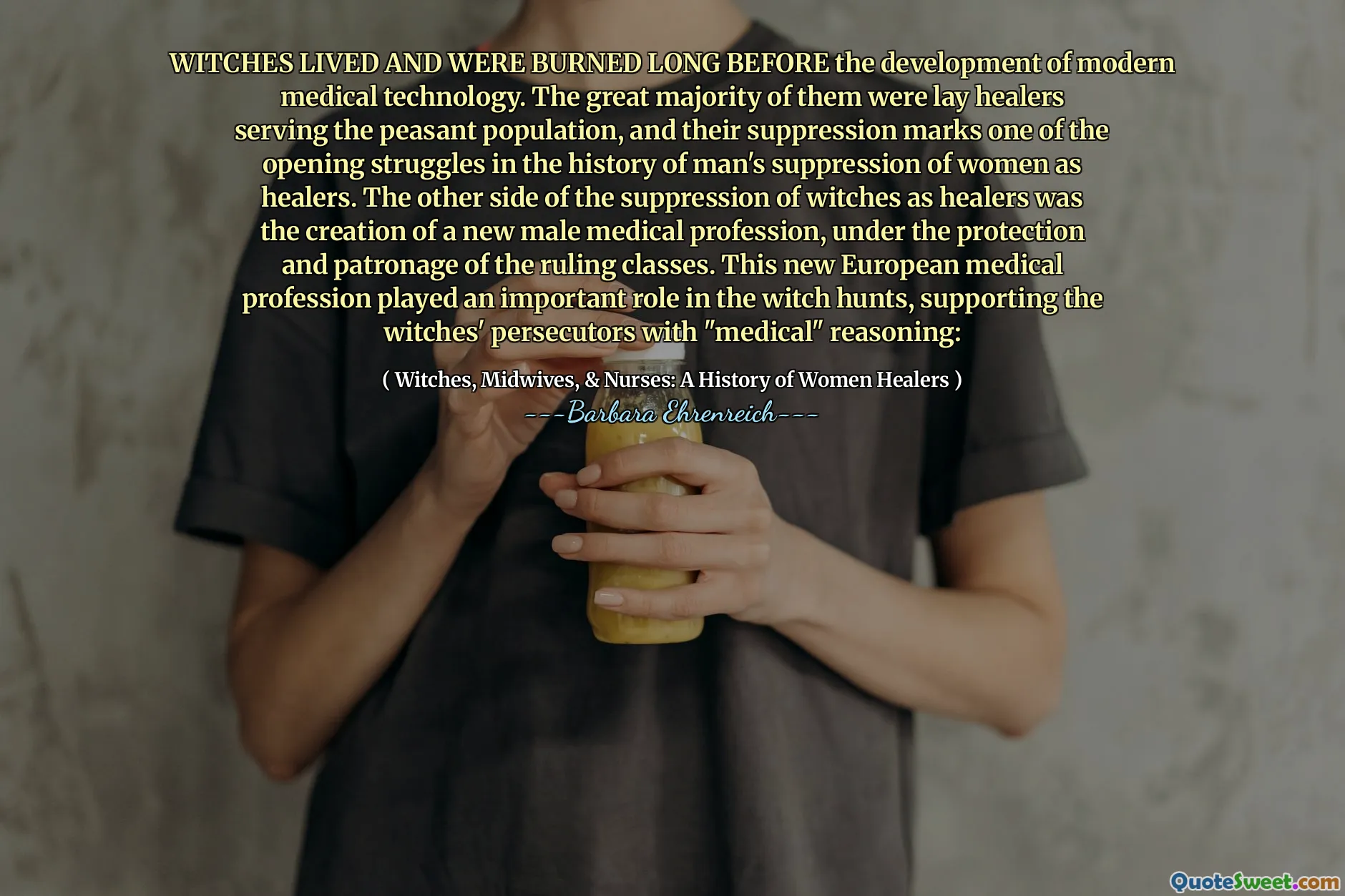
WITCHES LIVED AND WERE BURNED LONG BEFORE the development of modern medical technology. The great majority of them were lay healers serving the peasant population, and their suppression marks one of the opening struggles in the history of man's suppression of women as healers. The other side of the suppression of witches as healers was the creation of a new male medical profession, under the protection and patronage of the ruling classes. This new European medical profession played an important role in the witch hunts, supporting the witches' persecutors with "medical" reasoning:
This quote from Barbara Ehrenreich's Witches, Midwives, & Nurses: A History of Women Healers offers a profound reflection on the early intersection of gender, power, and medicine. It highlights that long before the advent of modern medical technologies, women who healed in their communities—often peasants themselves—were labeled as witches and persecuted. The quote sheds light on how the witch hunts were not merely misguided social or religious phenomena but also a direct attempt to suppress female authority in healthcare.
Ehrenreich links this suppression to the rise of a male-dominated medical profession, one legitimized and endorsed by the ruling classes, which systematically eroded the traditional roles women held as caregivers and healers. The insinuation that "medical" reasoning was used to justify the persecution underlines the misuse of emerging medical authority to marginalize and eliminate alternative healing practices, particularly those led by women. This historical context is an important reminder of how societal structures can exploit science and medicine to enforce power dynamics, often at the expense of marginalized groups.
This perspective compels readers to reconsider dominant narratives about medicine's history and recognize the complex relationship between gender politics and professionalization. It also prompts reflection on the value of alternative and traditional knowledge systems that were suppressed yet contributed to community well-being. Moreover, by recalling this aspect of history, the quote invites ongoing conversations about equity and power in healthcare professions today.






